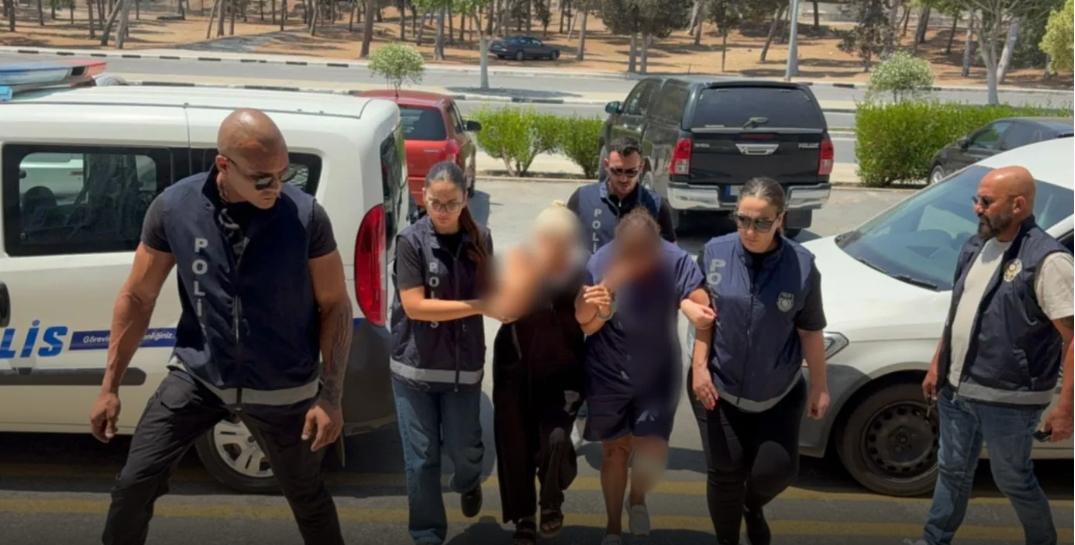FEW things in the recent history of the Cyprus problem have been able to generate such explosive language and visceral reactions from the leaders of the island’s two sides as the arrests made in relation to the development of Greek Cypriot owned property in the north.
When, earlier in the year, it was the Republic of Cyprus arresting European Union and third country nationals suspected of developing or aiding and abetting the development of Greek Cypriot-owned land in the north, an incensed Turkish Cypriot leader Ersin Tatar described those arrests on multiple occasions as “terrorism”.
Now, with the shoe on the other foot, and five Greek Cypriots currently being housed at the north’s central prison after being arrested on suspicion of information-gathering activities related to properties in the north, it is President Nikos Christodoulides’ turn to issue furious statements of condemnation.
He went on the attack last weekend, describing the arrests as an “illegal, pirate, and fascist decision by the occupation regime”, before warning that “those who will be hurt the most, at the end of the day, are our Turkish Cypriot compatriots”.
Somewhere between those two viewpoints was Tatar’s predecessor Mustafa Akinci, who described the string of arrests as a “tit-for-tat situation”, adding that the current state of affairs constitutes “an eye for an eye, a tooth for a tooth. The mentality of ‘if you arrest a contractor, we will do the same’”.
Authorities on both sides dispute this assessment, both insisting that the arrests made on their own side were apolitical and simple matters of the judiciary doing its job.
Government spokesman Konstantinos Letymbiotis said in June that “the Republic of Cyprus is acting within the framework of the rule of law”, while the north’s ‘prime minister’ Unal Ustel said this week that the judiciary there “operates at a high standard … and upholds the rule of law with its decisions”.
The saga began at the beginning of last year when high profile Turkish Cypriot lawyer Akan Kursat was arrested during a holiday in Italy.
It had initially been believed that Kursat’s arrest had come about as a result of a clerical error, with an arrest warrant having been put out in his name in 2004 and then subsequently lifted.
However, in February last year, he was extradited to Cyprus and charged with 20 counts relating to alleged illegal property developments, though the case against him was eventually suspended indefinitely because a key witness was dead.

This was not the end of matters, however, and the arrest of Kursat predicated a string of further arrests in the Republic of Cyprus.
Most notable among them was the arrest of Israeli property developer Simon Aykut, who was arrested while trying to cross from the north at the Ayios Dhometios crossing point in June last year.
He is accused of developing and selling €43 million worth of property on Greek Cypriot land in the north and has now spent more than 400 days in custody, with his trial ongoing.
A month after the arrest of Aykut, a German woman was arrested after having a conversation aboard a flight with Elam member of the European parliament Geadis Geadi in which prosecutors allege that she admitted to selling Greek Cypriot-owned property in the north.
She, too, has now spent more than a year in custody, with that case currently subject to a “trial within a trial” after defence lawyers alleged that the police bungled the arrest, searching the woman’s luggage before they obtained her consent, failing to inform her adequately of what was going on, and forging her handwriting.
In May, the first two sentences were handed down, with two Hungarian women being sentenced to two and a half years and 15 months in prison respectively after advertising the sale of houses in the north on their social media accounts and websites.
Days later, the north reacted by relaxing its laws regarding the purchase of real estate by non-Turkish Cypriots, allowing them to buy more properties than before.
It was around this time that some stirrings began around the idea of further retaliation, with the north’s ‘transport minister’ Erhan Arikli having said in June that the Turkish Cypriot authorities may “issue arrest warrants for those who use Turkish Cypriot properties in southern Cyprus”.
He also promised that the measures which would be taken by the Turkish Cypriot authorities will be “tougher” than those taken on the other side of the Green Line.

It was on July 19 that the promised retaliation eventually came, with the arrest of the five Greek Cypriots in the village of Galatia, near Trikomo.
All five have remained in custody since then, with two having been handed three-month remands at a court in Trikomo, facing charges of privacy violations, trespassing, and breaching the peace, and all five then being handed 13-day remands at a military court in northern Nicosia, after one was accused of having entered the north illegally, and the other four were accused of aiding and abetting that crime.
The Turkish Cypriot authorities also arrested two Turkish Cypriots, an 83-year-old estate agent and an employee of the north’s land registry, on suspicion of aiding and abetting the five. They were both released on bail on Thursday.
The final word on the matter thus far was had by Ersin Tatar, who himself linked the arrest of the five Greek Cypriots to the arrests made by the Republic, suggesting that the five may have been gathering data to be used in court in the Republic in cases against people accused of developing Greek Cypriot property in the north.
“It is a well-known fact that the Greek Cypriot leadership has been illegally collecting information, documents, and technical data from our country for a long time to further its hostile policies. This data is being presented as evidence in its own courts through the Greek Cypriot police,” he said.
As such, he added, Greek Cypriot anger at the arrests “stems from the exposure of these unlawful activities undertaken by [Nikos Christodoulides]”.






Click here to change your cookie preferences